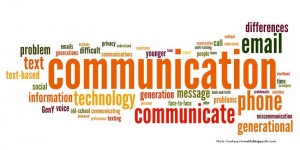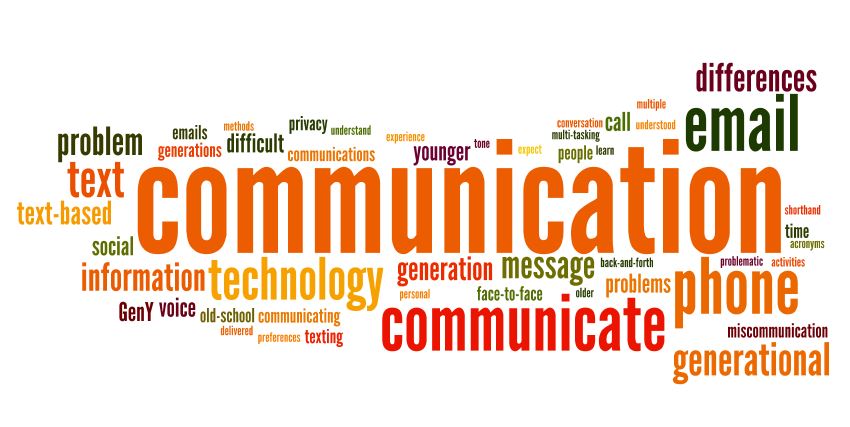
It’s Friday afternoon, and I’m awoken from my nap by the sound of a buzzing iPhone. I blindly search for it because it’s, of course, only inches away from me at all times. I look at the screen, 200 new messages. Before I can type a response and send it to the incredibly convenient “Group Me” messaging app, six more come in. But as I am reading over everything my friends said as I was asleep, deathly afraid I’ve missed something important, I realize nothing anyone has said has any real value. It’s mostly short phrases or slang that only serve to validate other short phrases that don’t mean anything. It is a continuous cycle of meaningless conversation.
While this realization seems quite cynical and despondent for the future of my generation, it is unfortunately true. Teenagers have lost the ability to converse.
Sure, we can communicate in abundance of ways: E-Mail, Twitter, Tumblr, Facebook, MySpace, Texting, Instant Messaging, and on and on. But we can’t seem to contribute to a positive cycle of ideas. We absorb information, but we don’t process it. We don’t synthesize what we’re given in order to add to it. Communicating is not the same as having meaningful conversations. A mix up that has often been labeled “lacking communication skills” by society.
Some would argue that it’s no big deal. We’re young, it’s expected of us to have limited vocabulary and “communication skills.” But the irony is we have incredible communication skills. The access we (in the United States) have to modern technology is overwhelming. We can literally connect with someone across the globe in a matter of seconds. But what good is this access to advanced technology if we have little to no significant material to contribute? Yes, we can tweet something and have 1,000+ followers see it within minutes, but often we’re just tweeting empty words.
The same can be said for high school. Classrooms are supposedly where our most innovative and complex ideas take root, yet we are given endless resources that we fail to effectively utilise. For example, I took two Paideia classes as a freshman, and according to the official Paideia Learning website, Paideia is “active learning—fostering critical and creative thinking through seminar dialogue, intellectual coaching, and mastery of information.” In Paideia, we had compound poems, short stories, historical documents and more laying in front of us, but in most seminars failed to actually communicate what the document needed us to. We had forty minute discussions where we talked in circles. It seemed as if it were impossible to have a conversation that moved anywhere past what was directly written on the paper.
However, this is the kind of communication that is vital to succeed not only in educational environments, but employment and even adult social situations. We will all eventually have to grow up and learn how to hold an intellectual conversation. We won’t always be able to use gifs, memes and emoji’s to convey what we think or how we feel. Our problem isn’t communication, it’s expression. We have lost the ability to talk to one another in person, using words that have substance.
Janet Sternberg, a professor of communication and media studies at Fordham University in New York, supports this. She said that students don’t look her in the eye and have trouble with the basics of direct conversation — habits that, she says, will not serve them well as they enter a world where many of their elders still expect an in-person conversation, or at the very least a phone call. Even experts like Sternberg admit, it’s not a lack in communication skills, but an inability to have interpersonal conversations.
There is, of course, nothing wrong with casual conversation between friends. One could argue that the constant banter — scores of group texts each day — keep people more connected. The problem, however, is that the conversation isn’t particularly deep — and therein lies the problem, says Joseph Grenny, co-author of the book “Crucial Conversations: Tools for Talking When Stakes are High.”
“The core problem has existed since we’ve had telephones — probably since the time of a telegraph,” Grenny says. “We loathe having crucial conversations. We are paralyzed and do what we can to avoid them.”
So what can we do to improve our face-to-face conversations and group discussions? Some say the key is recognizing your weak point and work on developing a wide range of communication skills. However teenagers are not always open to immediate, or self-motivated, change. It may be up to schools to create classes or curriculum that directly focuses on in-depth, quick conversation skills.
So, have young adults truly lost our ability to communicate, or just their capacity to synthesize and produce significant conversation? It’s a question that will be probably be stowed away into a vault with other pseudo-philosophical theories that plague our generation.

Leave a Reply